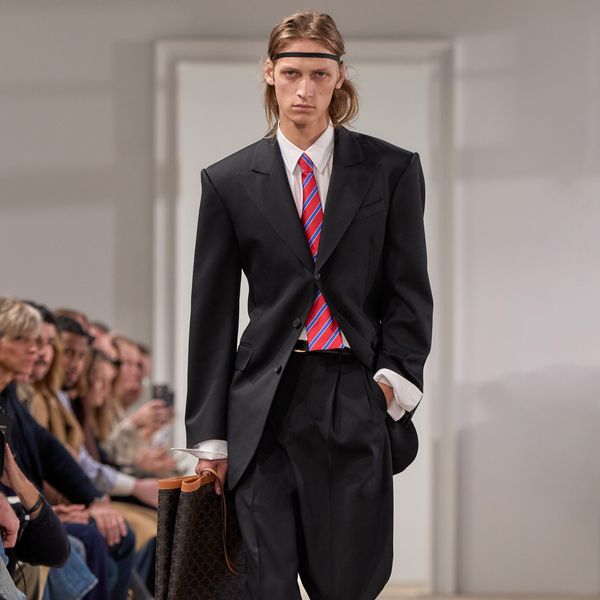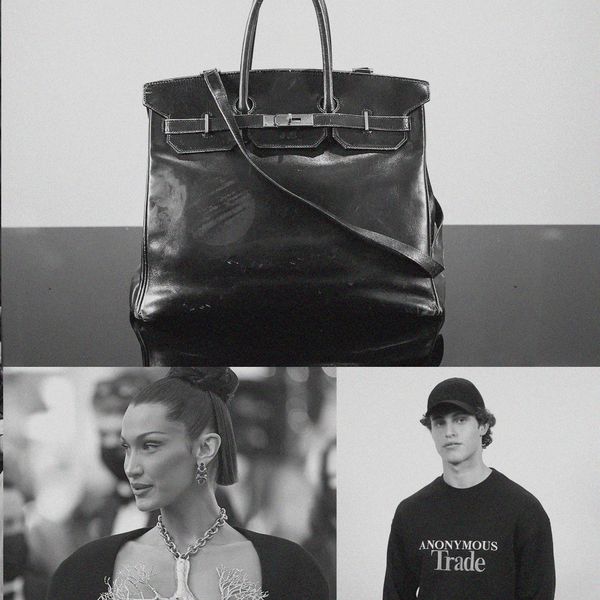Meet the Activist Who’s Probably Going to Save Us All
As the president and CEO of the Ms. Foundation, Teresa Younger is changing the world.
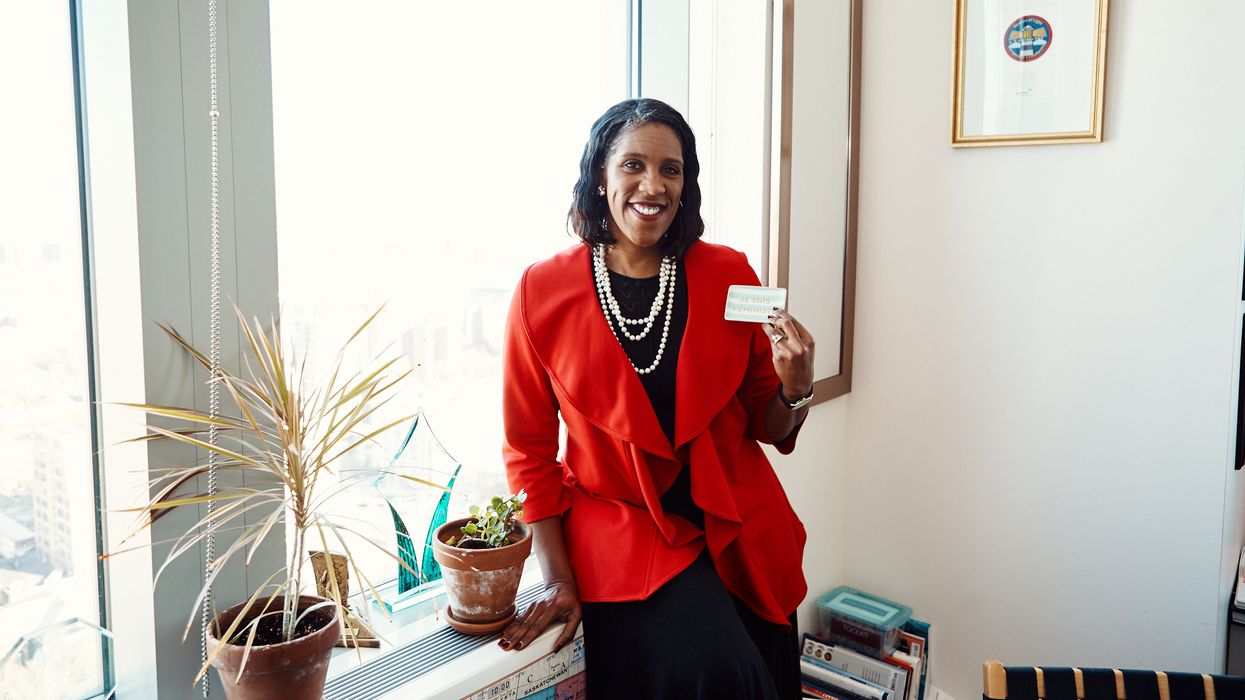
Teresa Younger, the President and CEO of the Brooklyn-based Ms. Foundation, founded in 1973, works with, in her words, “ass-kicking bad-ass women” all over the country. She was the first woman and the first African-American to serve as the Executive Director of the ACLU in Connecticut, and before joining Ms., she was the executive director of the Connecticut General Assembly’s Permanent Commission on the Status of Women, where she campaigned for women’s health, safety, and economic empowerment. She’s also a lifelong Girl Scout and is now also working with Our100—a movement to support women of color in positions of leadership, and demand accountability from our government. She’s a tireless advocate for equality, and is the kind of person who makes you instantly feel better about the state of the world.
We had the chance to meet with her in her office overlooking the city and hear about the work she’s doing with Ms., how she actually makes change happen, and what we can all do within our communities.
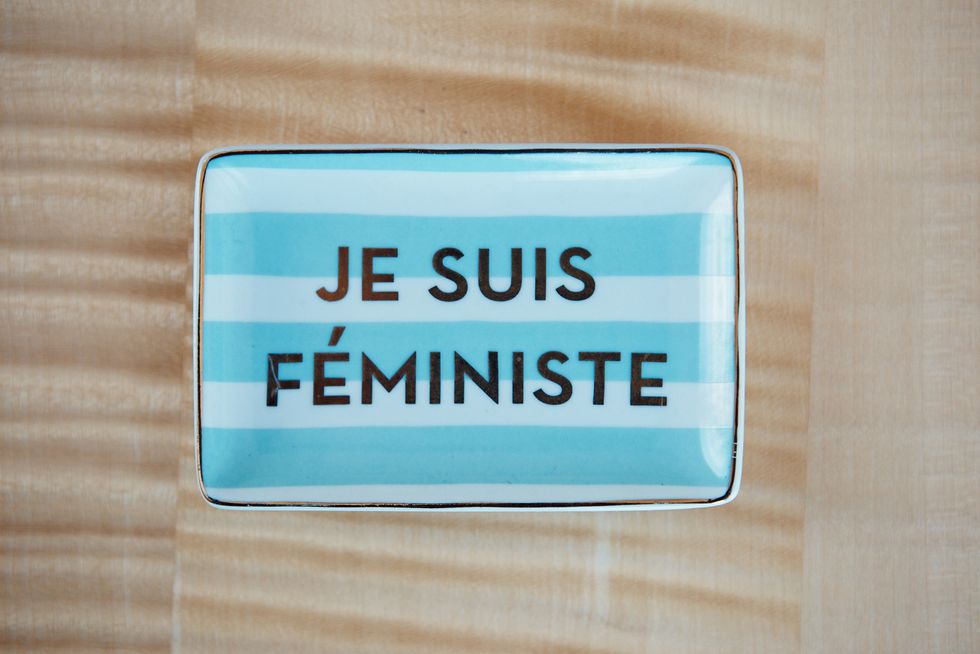
“Change only comes from making others uncomfortable.”
What led her to feminism in the first place:
“I’m a Girl Scout [laughs]! I think Juliette Gordon Low, who was the founder of the Girl Scouts, was probably one of the first feminists and really broke down the barriers. I always believed that you are supposed to make the world a better place and leave things better than you found them. You are a sister to every Scout. I think that was the premise by which I grew up. My parents really understood public service and I always knew you were supposed to speak up when other people didn’t have a voice. I didn’t know if that was activism, I didn’t know if that was feminism. I knew that I was fighting for fairness. I considered myself somebody who fought for equality and fairness. That was just part of who I was.
“I remember as a kid—my father was in the military and we were living overseas at the time—and the bus driver told the kids where we could and couldn’t sit on the bus. I just thought that was really unfair, and I don’t even remember all of the details around it, but I remember he said something that I thought was derogatory to a little girl. When we got to the gates to go onto base, I remember yelling out the window, ‘This bus driver is a racist!’ They stopped the bus and they wouldn’t let the bus go on. And I remember the little girl who he had something to said, ‘Thank you!’ Every parent had to come to the gate and come pick up the kids, because they wouldn’t let the bus come on base. I think that was one of my first radical moments.”
“What I would say to women is we don’t have to have all the answers before we engage in the conversation. Sometimes we do ourselves wrong by assuming we have to have all of the answers before we do something.”
How she is able to make real change happen:
“What I know is that change only comes from making others uncomfortable. I don’t have to make the whole world uncomfortable. I just need to make a couple of people uncomfortable. Then I need to build up those around me to help in that fight. It’s really not just about me. Even now it’s like, ‘Who else do we bring to the table, how do I learn about valuing their voices so I can insure that they get heard in the right places? How do I leverage power? How do I give power away so I am not the person holding it?’ Whatever the size of the challenge, it’s really about who is around me to help me do this. Asking myself, ‘Can I convince people to do this with me?’ Then trusting that they are going to do it the best way they know how and not critiquing it or being critical of it, but really learning from it.
“At the ACLU I always went to women. I went to the women and said, ‘How do we make this happen?’ And they said, ‘You need to talk to this person, and when you talk to this person they are going to invite that to dinner, you need to go to dinner with this person. She is going to introduce you to her family. Her spouse will then validate you to the community, that will help you make inroads.’ It wasn’t really about me; it was really about how do you do this? That really opened up my eyes.”
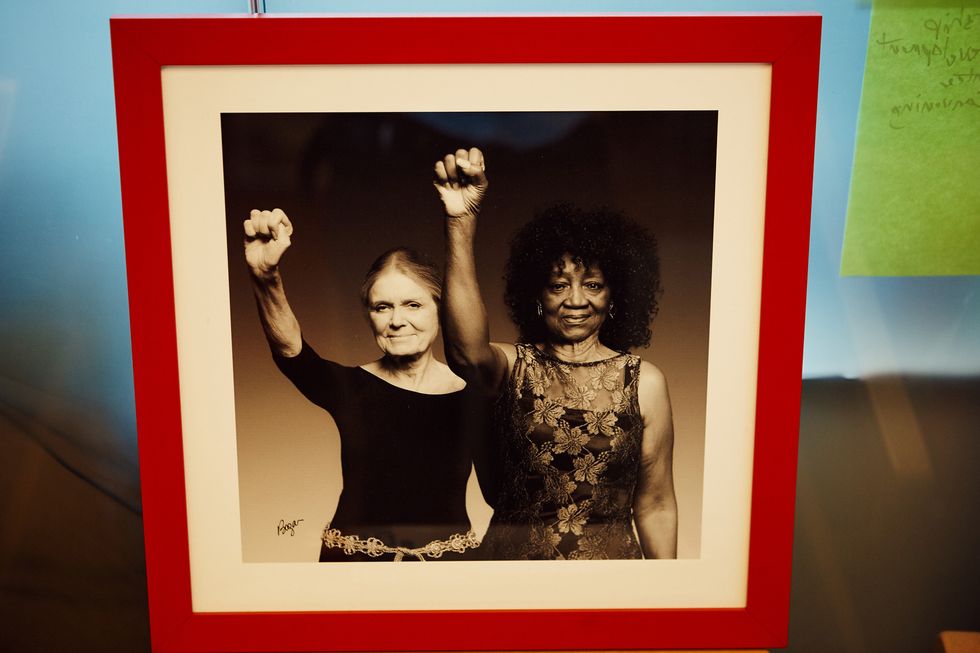
How to have, and prepare for, those uncomfortable conversations:
“What I would say to women is we don’t have to have all the answers before we engage in the conversation. Sometimes we do ourselves wrong by assuming we have to have all of the answers before we do something. We have to totally know what is going on before we do it. We need to trust our own intuition. We need to say we don’t have all the answers but we would like to be in the conversation. Then we need to educate ourselves as best as we can and know that there is no one absolute, there are many answers.
“How do you just start somewhere? I always say the kitchen table is the best spot for a conversation to happen. Go to a movie, have a conversation with someone after the movie. How did it make you feel? Trust what that gut is. If it makes you uncomfortable [to ask questions], you don’t have to make someone else uncomfortable with a question. You can make someone else uncomfortable just by wearing a pin or by inviting someone to a movie or a talk that is happening in your community or inviting people to read a book that you thought about or a question that you raised. I think that all of those pieces are ways we can start. And not just do it with people who are just like-minded. You have to start out finding your tribe, so you know you have that comfort level to go back to, but then it’s about how do you start engaging more broadly.”
On working towards a more inclusive, representative form of feminism:
“When I got here, I went on a listening tour my first year. I traveled about 56,000 miles around the country in the first year and a half and met with groups no larger than 20 people at a time. Oftentimes they were as small as six. I listened to what they were talking about and what was important to them. Almost everywhere I went I heard the same thing: ‘The women’s movement and feminism is not for me because...I’m a lesbian woman and straight women don’t want me. I’m a trans woman and [people] don’t want me to sit in the circle...I’m a black woman and women don’t want me...I’m a man and women in general don’t want us in that circle.’
“What I have been striving to do is to broaden the tent and share the values. We did a campaign when I got here called ‘My Feminism Is,’ where we started engaging people in the values of social, political, and economic equality of all genders and said, ‘If you believe in that value, what you call yourself in terms of the labeling is irrelevant to us.’
“And then we said let’s build the tent but let’s not put a door on the front of the tent, let’s leave it open so that as many people can come in and out as they want to at any given time. I think that is where we have to be, we have to move away from the labeling and let people identify as they want to. We’re taking down all of the barriers.
“In this campaign we identified that women with disabilities, the lesbian community, many men who are in the conversation also—because this isn’t about the women’s movement and women’s issues—and this is really about the issues that are affecting the lives of women and the movements that affect the lives of women.
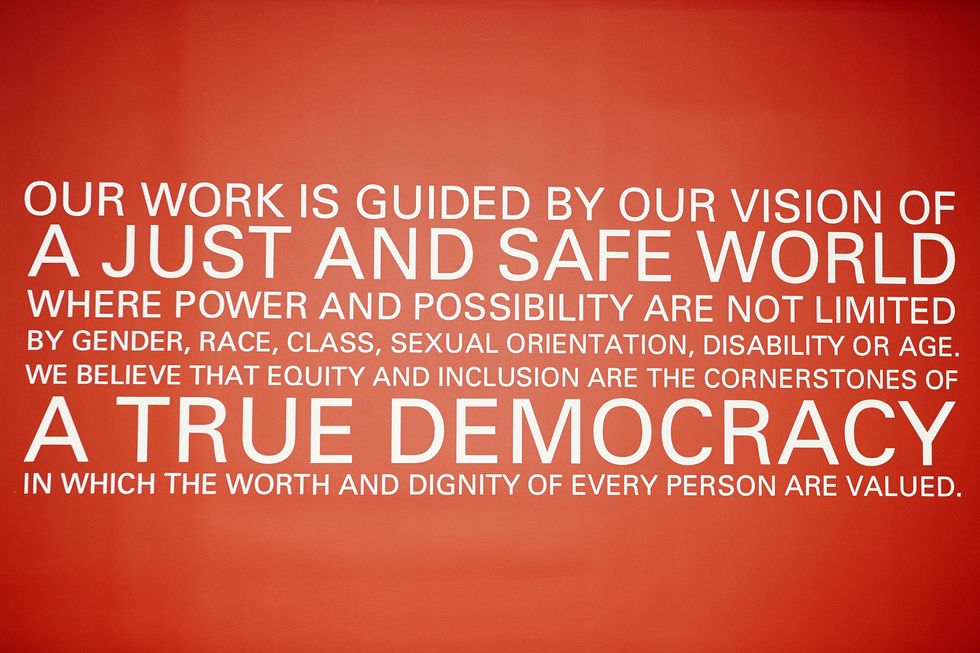
“We ask ourselves a lot: Who is missing from this table?”
How to bring people into the tent:
“I think what we do is we have the conversation; we acknowledge that people may not identify as a feminist, but do they agree with the value statement that we put in front of them? We did polling on this and 16 percent of people identified as a feminist, but when we asked them about the value of the definition of feminism, it skyrocketed to something like 80+ percent. I think part of it is people have assumptions about what feminism is and what activism is about and so what we’ve really tried to say is, ‘How do you define what it is? How do you define what that looks like and who is at the table and who is not at the table? And who’s at the table and who got them there and who is missing from this table?’ We ask ourselves a lot: Who is missing from this table? Because that is really important. At the Ms. Foundation we actually are not just centering women, but we are asking many communities to center women of color in the conversation. That’s a really different conversation to have, asking, ‘Who is missing from the table?’ totally changes the conversation. That’s a lot of the work that we have been trying to do. Where do we need to be, where do we ask those questions, and then how do we effectively try to change the narrative and influence the funding that goes to centering women of color in ongoing conversations and movement structures in this country.”
How this relates to Our100:
“Our100 was really structured before the election to really show that women of color are leading many organizations and have significant voice, but most people are not recognizing it. That was really targeted at black women and at women of color to raise their voices and to take a pledge together, to recognize that we are all in this together and we actually are a ‘leader-ful’ community. There are many women out there, many women of color, many black women, who are actually doing this work and it may be names you don’t know, but it is really important that we recognize that it’s happening.”
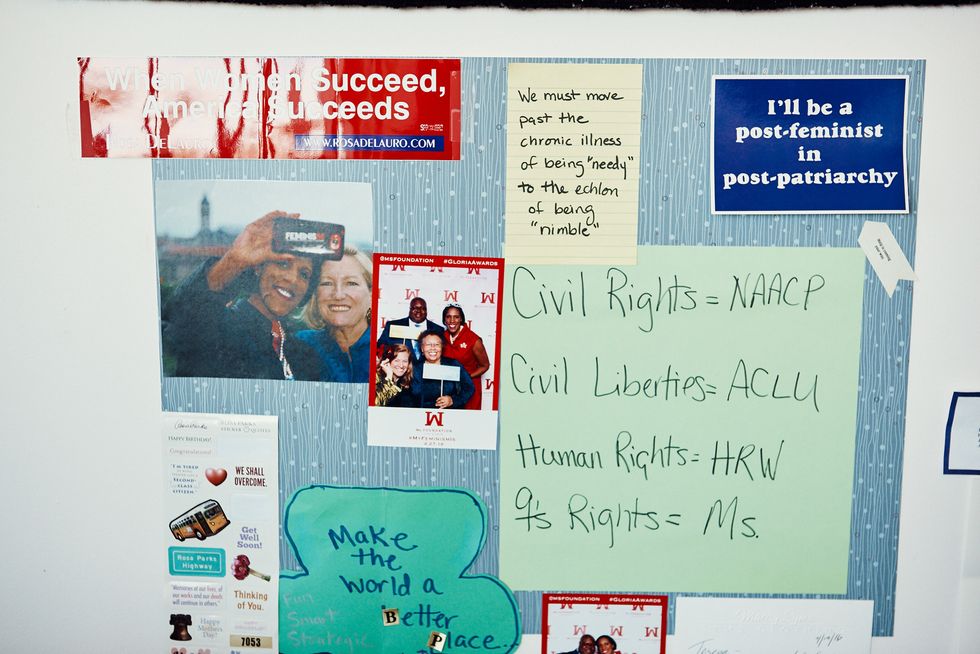
The work she’s doing at Ms.:
“Here at the Ms. Foundation we have right now, to date, about 80-100 grantees across the country. Over the history of the Ms. Foundation and in the past 43 years we’ve had over 1600 grantees across the country. These are some of the most amazing women I have ever gotten a chance to work with, and some of the most committed organizations that I’ve ever gotten to work with. It’s not just about them, it’s about building their communities. It’s about advocating and amplifying the voices of what they are doing in their communities. When I started, I went on a listening tour and I [went] to meet our grantees in their communities doing the work that they do.
“We have a grantee group in New Mexico, Young Women United, in Albuquerque, New Mexico. It’s a state-wide organization and they started asking the question ‘Why are young parents and young women dropping out of school after they give birth?’ They found out that because they were leaving school to give birth, they were missing so many days that they couldn’t graduate with their own classes. Rather than come back, they would just go and get their GED because they wanted to graduate with their friends.
“They worked in local communities with their school boards to change the laws locally so young women could be out of school for an extended period of time if they were gone on maternity leave, and still graduate with their class and graduate on time. That became a state law that was led by Young Women United. It’s like a family medical leave act for young parents and it was not about shaming young women into not having children when they choose to, but it was really about recognizing that education is just one more piece of what they do.”
“Over the history of the Ms. Foundation and in the past 43 years we’ve had over 1600 grantees across the country.”
“I had a chance to go out there for their one-year anniversary of the passage of that legislation. We got to this school, which has one of the first childcare programs in a high school in the country, we were waiting and waiting and waiting and there are kids running around, young parents in the room, school board members in the room, teachers in the room.
“In walks this young woman, and she has got a three-year-old on her hip and she apologizes to the room, takes out a piece of paper, her hands are shaking and she says, ‘Thank you all for being here today. I’m so sorry I was late. This has been an amazing year for me. This year I graduated from high school, I married the father of my child, and today was my first day of college. And I’m late today because I stayed after to speak to my professor.’ I still get choked up. She wouldn’t have graduated and probably even gone to college if this law hadn’t passed.
“She went on to say, ‘To all of the young parents in the room, it is your obligation to be an advocate for yourself and for your children. Your voice matters and you have to speak up.’ Then she said. ‘And to the funders in this room, like the Ms. Foundation, your money helps us and it is more than you think.’ We gave a small grant for this because we don’t have a ton of money, she said, ‘Your grant paid for a babysitter so that we could come to the meetings and organize ourselves. Your grant paid for the bus vouchers so that we could get to the meetings ourselves because we didn’t have cars. Your grant paid for the van that drove us up to Santa Fe so that we could testify.’ That is what I’m talking about. People may think $1, $10, $30 a month does not affect a group. It does.”
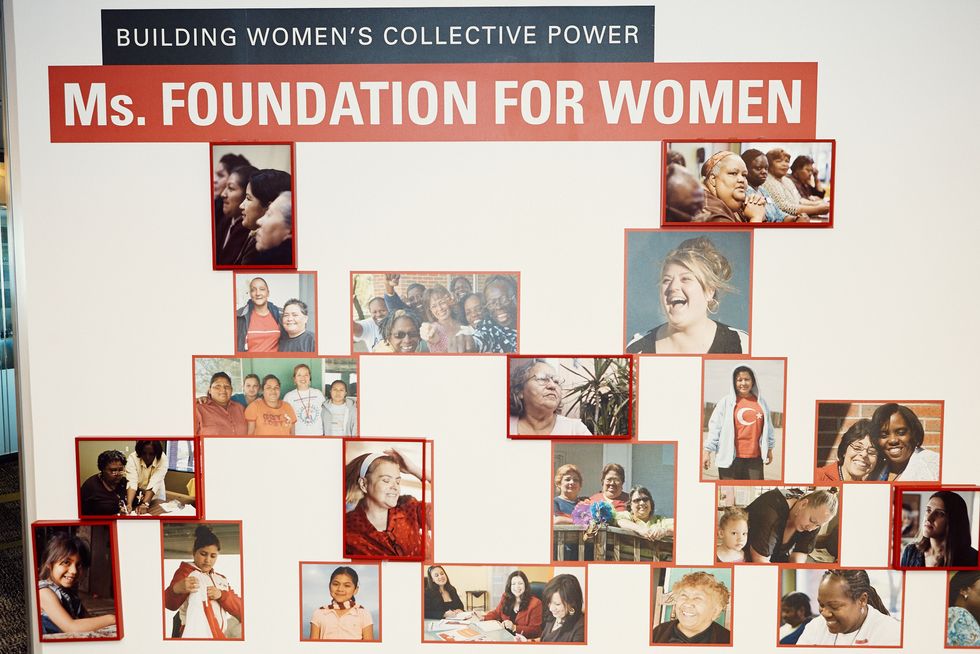
How to best get involved and help within your community:
“I think the best thing people can do right now is to find a local organization that is like-minded. If you don’t know what those organizations are, start asking around. Identify the issues that are most important to you. Give money. Even if it’s a dollar a month that you can give, that will go a long way. Talk about the issues with your friends. What I think we missed [with the election], is we made assumptions about where our friends and family were going to be and we didn’t have real conversations. It will be okay to disagree, but use it as real venues and have real conversations.
“[Ask] how are you helping the movements that are out there? Not just the women’s movement, but what is happening in the environmental justice movements, the racial justice movements, and the immigrants’ rights movements. There are so many movements out there. Just do something! Identify what is happening locally, and participate because the reality is that while Donald Trump may be the President of the United States, there is a lot of stuff happening on both the city level and the state level and that is where we can build in some of the protections we need to have.”
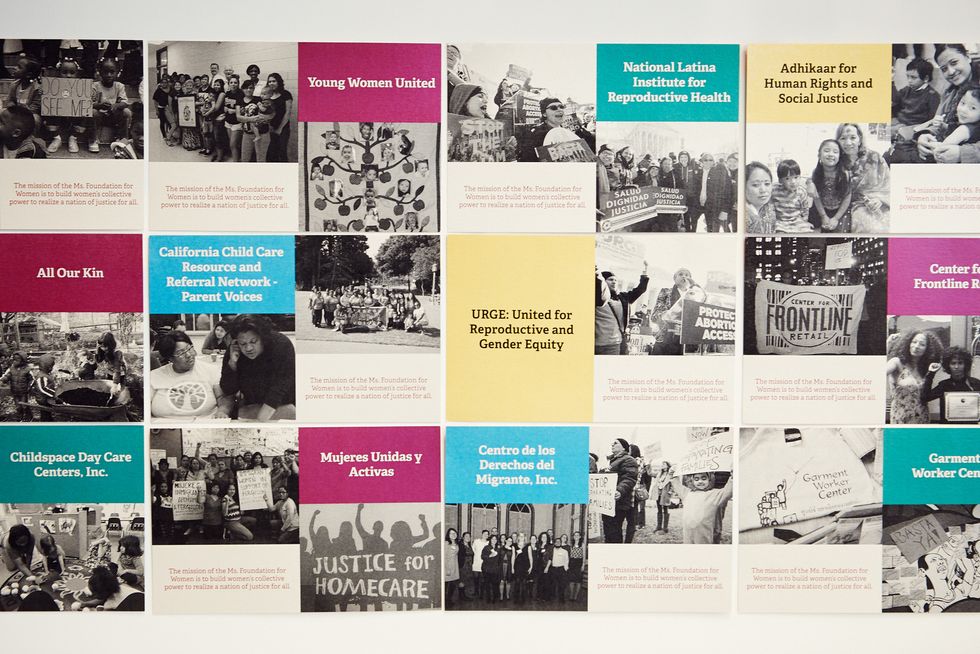
What she’s most proud of:
“I feel grateful every day. Even on the darkest of days, to be able to speak and be heard. To be able to leverage whatever I have to help others get heard. To challenge people and ask questions. I’m lucky because people recognize the work that I have the opportunity to do a lot. Whether it’s Planned Parenthood, whether it’s the philanthropic community, whether it’s the Girl Scouts, whether it’s racial justice communities or the ACLU and civil rights.
“I have young women who I’ve mentored who are in the disability community who are now in college, who are challenging their college to be more inclusive and being able to meet their needs. I have young women who were exposed to racial justice conversations who go to college and now are leading their schools’ racial justice programs. That is not just because of me but I do think that that kind of work, that kind of engagement, helps us learn and expand and I think I am really proud of those relationships and friendships.”

